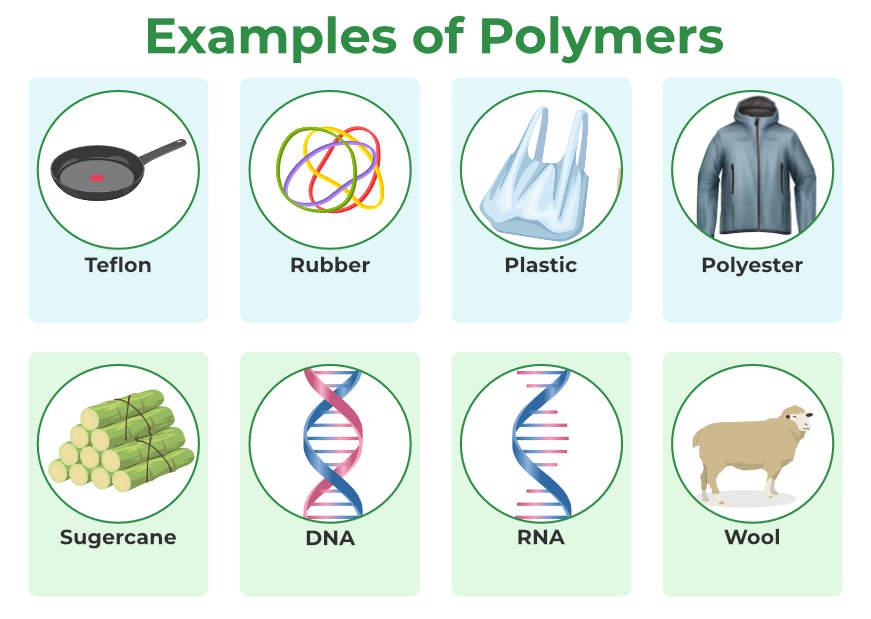Exploring the Varied Applications and Advantages of Polymers in Different Industries
Polymers, with their varied range of properties and capabilities, have ended up being crucial in different industries, each reaping special advantages from their application. From improving safety and security and efficiency in the auto market to revolutionizing medical gadgets in the health care industry, polymers play a pivotal duty.
Automotive Field Applications
Polymers play a pivotal role in improving the performance and longevity of numerous parts within the automobile market. These versatile products are thoroughly used in the manufacturing of different parts, varying from indoor components to under-the-hood applications. One noticeable use polymers in the auto sector is in the production of light-weight elements. By changing standard metal get rid of polymer-based choices, automobiles can accomplish better fuel efficiency without jeopardizing on toughness or safety and security.

Healthcare Industry Advantages
In numerous medical care applications, the benefits of using polymers are extensively acknowledged for their diverse range of useful properties. Polymers play a crucial duty in the healthcare sector due to their versatility, biocompatibility, and cost-effectiveness. Among the key benefits of polymers in medical care is their ability to be customized to specific requirements, such as flexibility, resilience, and biodegradability, making them perfect for a wide variety of clinical applications.
Polymer-based products are extensively made use of in clinical gadgets, such as catheters, implants, prosthetics, and medicine distribution systems, due to their biocompatibility and ability to mimic all-natural cells. These products can lower the threat of sensitive responses or rejections, enhancing person safety and results. In addition, polymers are light-weight, making them appropriate for wearable clinical devices and making sure individual comfort.
Additionally, polymers allow the growth of ingenious therapy techniques, such as hydrogels for cells design and nanocomposites for targeted medication delivery. Their convenience of handling and sterilization makes them essential for keeping high criteria of hygiene in healthcare settings. In general, the varied benefits of polymers contribute substantially to improvements in clinical modern technology and patient care.
Environmental Benefits of Polymers

Moreover, polymers can contribute to power savings because of their lightweight nature. In sectors such as transport, light-weight polymer materials can aid lower gas consumption and greenhouse gas emissions. Additionally, polymers can make it possible for the development of energy-efficient items such as insulation materials that improve energy preservation in structures.
In addition, polymers play a vital function in minimizing water air pollution. As an example, using polymer-based filtration systems can efficiently get rid of contaminants and impurities from wastewater, guarding water resources and communities. In general, the environmental advantages of polymers make them important properties in advertising sustainability and eco-friendly practices throughout various sectors.
Polymers in Electronic Devices and Technology
Considering the raising demand for innovative and sustainable remedies in modern sectors, the integration of advanced polymer technologies in the world of electronic devices and modern technology has become an essential technique for driving efficiency and performance. Polymers have changed the electronics sector by enabling the manufacturing of lighter, more versatile, and long lasting digital tools. From smart devices to clinical tools, polymers play an important role in boosting item style and functionality.
One considerable advantage of polymers in electronic devices is their shielding homes, which aid protect fragile digital components from ecological elements and electric disturbance. Additionally, polymers are crucial in the advancement of adaptable screens, wearable innovation, and published electronics, using countless opportunities for producing smart and interconnected devices.
Moreover, the use of polymers in electronic product packaging has caused developments in miniaturization and thermal management, enhancing the total efficiency and reliability of digital systems. As modern technology remains to develop, the convenience and versatility of polymers will most certainly drive even more advancement in the electronic devices market, shaping the future of innovation.
Role of Polymers in Building And Construction and Infrastructure
Polymers provide many benefits in the building and pop over here construction sector due to their flexibility, longevity, and cost-effectiveness. One crucial duty of polymers in construction is their use in layers and sealants, supplying security against environmental variables such as dampness, UV radiation, and rust.
Furthermore, polymers play an essential function in lasting building and construction techniques by allowing the growth of energy-efficient structures. Insulating materials made from polymers help manage interior temperatures, minimizing the requirement for heating and cooling systems and inevitably reducing energy consumption. The use of polymer-based composites in framework projects such as bridges and roads boosts their long life and reduces maintenance prices. Generally, the unification of polymers in construction and infrastructure showcases their considerable impact on modern-day engineering methods.
Final Thought
In verdict, polymers play an important duty in numerous markets such as vehicle, healthcare, ecological, electronics, and building and construction. From boosting gas effectiveness in cars to boosting clinical devices, polymers supply numerous benefits.